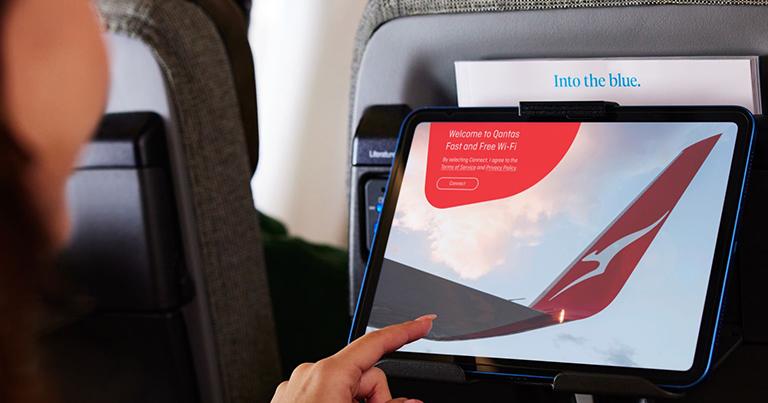
The Qantas Group has revealed what customers can expect from its Airbus A220s when the new aircraft start flying commercially in March 2024, as part of a multi-billion dollar investment pipeline over the next few years.
QantasLink has taken delivery of the first two of 29 Airbus A220 aircraft, which will steadily replace its long-serving fleet of Boeing 717s. Key features customers can expect are:
- Space for 137 passengers across two cabins, with 10 Business seats in a 2-2 configuration and 127 seats in Economy in a 2-3 configuration.
- The largest windows of any single aisle aircraft and a cabin with a greater sense of space.
- Fast, free WiFi, allowing customers to stay connected, as well as the improved Qantas Entertainment App for streaming content to their own device.
- An integrated personal device holder and USB A and C charging in both Economy and Business; additional wireless charging pad in Business.
- More comfortable Economy seat with extra padding compared with the 717.
- Around 20% more overhead locker space for all customers.
- Reduction in noise footprint of up to 50% and reduction in carbon emissions of 25%.
Qantas will retrofit its existing fleet of international aircraft with fast and free WiFi, with the service due to be progressively switched on from the end of 2024.
The airline will offer “fast and free” international WiFi with enough bandwidth for every passenger to enjoy a fast and consistent connection. The service will tap into the latest technology from Viasat, giving customers on international flights the ability to stream movies, TV shows, the latest news bulletins and live sports.
Qantas’ A330, B787 and A380 fleets will progressively be retrofitted to enable connection to Viasat’s expanding next-generation satellite network. New aircraft currently on order, including A350 and B787 fleets, will be WiFi capable when delivered.
Meanwhile, Qantas and Jetstar customers will see a major revamp across digital channels with an ongoing rollout of improvements designed to make it easier for customers to manage their travel on the ground, including during disruptions. The multi-million dollar investment in new technology over three years includes:
- A major evolution of the Qantas app to deliver more functions. Customers can now track their bags at various stages of their journey. New features will be rolling out each month, including enhanced baggage tracking, flight tracking and improved status updates during disruptions, and updates on customer enquiries.
- A complete overhaul of qantas.com from mid-2024, making it significantly faster and easier to use.
- Jetstar has recently launched online check-in for international flights, enabling a quicker and more efficient experience through the airport, and a new app, providing a better service with live notifications of gate or flight updates.
“We’re investing heavily in new aircraft that are a step-change from the technology they replace,” said Vanessa Hudson, Qantas Group CEO. “We know that staying connected is important to customers on international flights, and we’ve deliberately waited for the same high-speed connection we use domestically to be available on our overseas routes. The new widebody aircraft we have on order in the next few years will come with high-speed WiFi enabled, but today we’re announcing we’ll be fitting it to our existing long-haul aircraft from late 2024, which coincides with a new satellite launching that will significantly expand coverage. All of the investments we’re making are about supporting the great work our people do every day to deliver the best experience they can for our customers, and restoring pride and confidence in the national carrier.”






